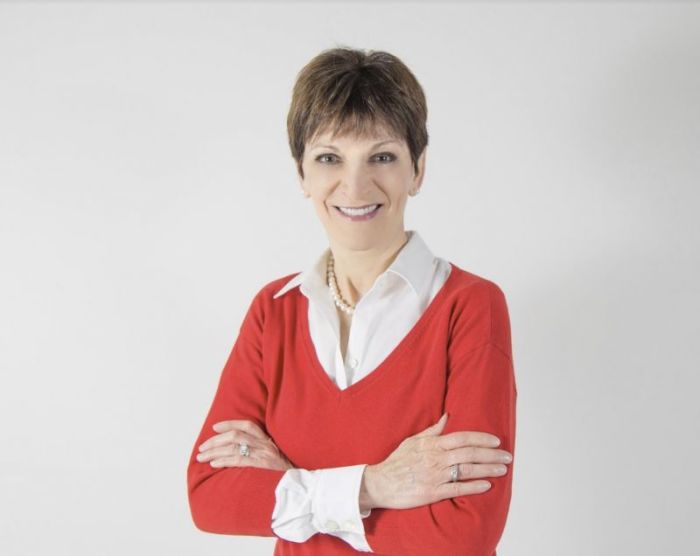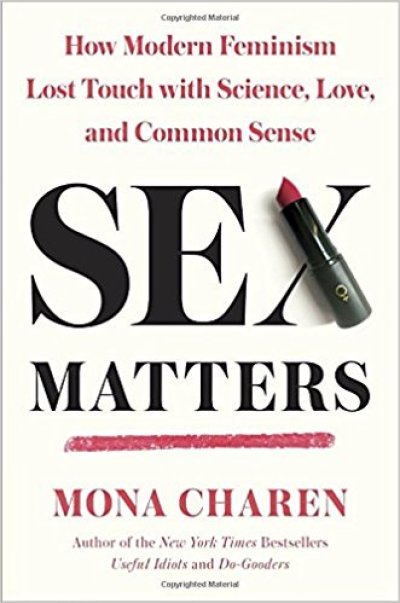Mona Charen wanted to be called 'Timmy' as child, thankful she didn't grow up in today's LGBT culture
Mona Charen wanted to be called 'Timmy' as child, thankful she didn't grow up in today's LGBT culture

WASHINGTON — Mona Charen is a well-known conservative author, columnist and speech writer who has spoken out about the dangers of modern feminism and the transgender identity push on children. But what many might not know about her is that at one point in her childhood, she wanted people to call her "Timmy."
"I shudder to think what would have happened if I had come along a little later in history," Charen told The Christian Post during an interview this week about her book, Sex Matters: How Modern Feminism Lost Touch With Science, Love and Common Sense.
Charen, a senior fellow at the Washington, D.C.-based think tank Ethics & Public Policy Center and a columnist for the National Review, spoke out against the trend nowadays in which parents are not assigning a sex to their children and let them grow up to be whatever gender they desire to be.

As the number of children being referred to gender identity clinics as candidates to potentially receive life-altering hormone-suppression and replacement therapies is increasing, the former Nancy Reagan speech writer said that she really worries about what is going on today with parents giving too much credence to their children's gender confusion at early stages in life.
"I was a tomboy myself. I liked to climb trees and play with toy trucks," Charen said. "I wanted my friends to call me Timmy for a period of my childhood."
She said that she doesn't remember exactly how old she was at that stage of her childhood but said that it must have been during her preschool or kindergarten years.
She said that it wasn't a matter of her wanting to dress like a boy — which she frequently did because she received hand-me-downs from her older brothers. Rather, it was because she simply liked the name "Timmy" and thought being a boy was "cool."
"I don't remember hating dresses or anything like that," she said. "I do remember thinking that being a boy was really cool and being a boy was great."
But like most children in that situation, Charen eventually grew out of that phase in her life.
"I obviously grew out of it," Charen explained. "From what I can tell from looking at the literature, most children who say at some point during their childhood that they identify as the other sex grow out of it. They go through puberty and they grow out of it."
Charen fears that something as innocent as a young child wanting to be called another name in today's LGBT-inclusive culture could lead parents to push their kids into pursuing an identity in the opposite sex and possibly push them down a road of irreversible gender treatment at an age when they are not mature enough to make such drastic life decisions.
Statistics from the fifth edition of American Psychiatric Association's Diagnostic and Statistical Manual of Mental Disorders indicate that the persistence of gender dysphoria in children does not often persist into adulthood. The data shows that persistence of gender dysphoria into adulthood ranges for 2.2 to 30 percent in biological males, while it ranges 12 to 50 percent for biological females.
"I really worry about what is going on now," she said, adding that kids today are being too easily labeled as "trans." "Parents are going to have a tomboy little girl who wants to be called 'Timmy' and they are going to think that in order to do right by her they are going to start calling her 'Timmy' and that they should cut her hair and have her use the boys' bathroom."
In her book, Charen explains how second-wave feminists had argued for years about how the differences between men and women were a result of social construct and conditioning.
"Overall, [their view of] sex differences has been debunked by scientific research in the last decades. We know so much more now about brain structure and organization, about the influence of hormones, about certain basic hardwire differences between male and female brains as well as bodies," the 61-year-old author said. "The idea that everything that is different about man and women being a result of socialization has been shown to be wrong. That is where the science has caught up with them."
Instead of acknowledging the scientific findings, Charen said, dishonest feminists sought to "change the vocabulary."
"They stopped talking about there being no difference between the sexes and they started talking about gender," she said. "They said, 'Well, there are many genders and gender is subjective and it can't be measured by hormones and chromosomes. They really just kind of, with sleight of hand and language, they avoided the scientific debunking of their pet theories about people being identical."
The movement to change such language is also playing out at the public school level. Most recently, a school board in Virginia voted to change the language in its middle school and high school sex-ed curriculum to scrub out the phrase "biological sex" and replace it with "sex assigned at birth."
"There are even parents now who are declining to assign a sex to their babies. They don't want tell people whether they had a boy or a girl. They are saying they are going to find out as the child develops what sex it is," she said. "I regard this as the logical endpoint of the feminist's wrong ideas of the 1970s that everything is socially constructed. That is where we have arrived." "We have arrived at a place where we are now investing a lot into the idea of gender identity — which I am not even sure is a thing," Charen continued. "They are investing a lot in the idea that this is all purely subjective."
In Charen's view, she doesn't have a problem with adults who want to go through with gender transition procedures and therapies because it is a "free country" and "people can do whatever they want."
"But I think it is really dangerous, just based on a theory about sexuality, to begin giving massive hormone-blocking injections to prepubescent children and to mess with their psyche's by ... cutting [a girl's] hair in a boy's fashion and putting [a girl] in boy's clothing and treating her as a boy," Charen stressed. "Kids go through phases. Some girls are very masculine and they are still girls. Some boys are very feminine but they are still boys. The notion that you would interfere with that is really scary. Children are not capable of making such life-altering, drastic decisions for themselves, certainly not when they are preschoolers. I find this whole thing very, very dangerous."




























